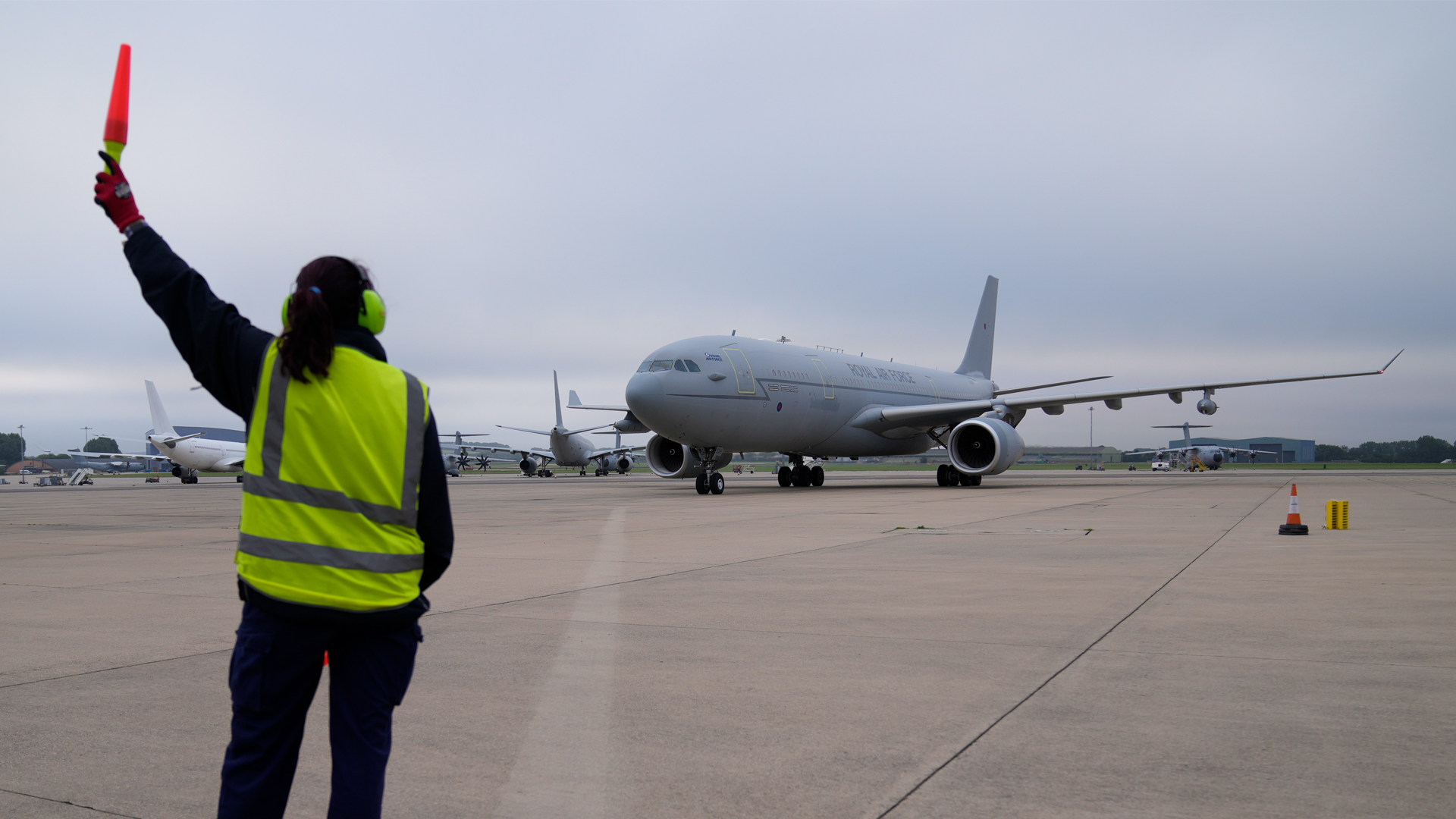

Even as there are political fights over what to do about climate change, militaries have been very clear in their acceptance of climate science, and open about planning to adapt their capabilities to a changing world. In the United States, the Pentagon has been preparing for warmer seas and worsening natural disasters, making plans for everything from protecting or moving bases to potential geostrategic conflicts.
Meanwhile some recent technological moves from European nations will military adapt to the climate reality. This week the Netherlands unveiled the first batch of a total of 134 electric vehicles it will use for moving supplies and maintenance pieces around bases to help maintain operational readiness. The full fleet will be delivered by year’s end, and there is a potential for further expansion.
The Dutch Ministry of Defense noted in its announcement that the new vehicles not only reduce emissions but can be easily charged at any base, rather than having to rely on specific fossil fuel setups. It’s not a full replacement of existing vehicles, but it points to a shift in how the Netherlands wants to update its logistics in the time of climate change. After all, combat units are maintained and fueled by what is delivered to the front lines.
Just off of the continent, the United Kingdom’s Royal Air Force hit a new stage in its effort to run off of synthetic fuel. After a successful fully synthetic flight in November of last year, the RAF is expanding production of this new fuel to use in further test flights. The expanded research and testing will allow the air force to develop wider fueling technology to help squadrons and air wings.
“It has the potential to improve operational resilience while eliminating fossil carbon emissions in flight,” Defense Minister Jeremy Quin said in a statement on the expanded testing.
The RAF is working on hitting net zero in its emissions, but there are strategic elements at play. Beyond just being an alternative to the currently very expensive petroleum fuel, this synthetic fuel, if widely adopted, could provide a way for the United Kingdom to ease off dependence on foreign oil. As Europe has seen with Russia’s invasion of Ukraine, reliance on a hostile or difficult actor for energy sufficiency can put nations in tricky situations when it comes to diplomacy and security.
There is legitimate concern for immediate adaptation. The same heat wave sparking fires in Europe recently melted a runway used by the Royal Air Force. Militaries are joining firefighters in combating wildfires in multiple countries (and in the case of Slovenia, having to deal with unexploded ordnance from World War I that’s now being set off). Even rising temperatures and sea levels are endangering training spaces, such as the Marine Recruit Depot at Parris Island, which is looking into modifying the base for higher water levels.
The latest developments from the Netherlands and U.K. aren’t a full green overhaul of their armed forces, but they do mark investments and seriousness in building a more eco-resilient military. If both attempts prove successful, it’s possible to see these strategies more widely adopted across Europe and other nations.
The latest on Task & Purpose
- Navy fires nuclear submarine captain after only 8 months on the job
- Which Marine Corps boot camp is tougher? This Marine experienced both
- Air Force relieves medical squadron commander after barely a year on the job
- Airmen acted on ‘gut feeling’ when they rescued 8 people from a circling bull shark
- The Army may ditch alcohol restrictions for soldiers in the barracks
Want to write for Task & Purpose? Click here. Or check out the latest stories on our homepage.
